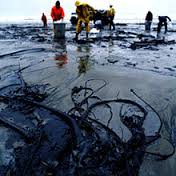Nigeria Records 4,145 Crude Oil Thefts in Five Months -Report

It is alarming to discover that there have been 4,145 recorded crude oil theft incidents between May and the second week of October 2023, a review of crude oil theft incident reports by the Nigerian National Petroleum Company Limited (NNPCL), has revealed.
A summation of crude oil theft incidents recorded between May 2023 and October 2023, showed that a total of 4,145 crude oil theft incidents were recorded between May 2023 and the second week of October 2023.
According to NNPCL records, some of the more active hotspots for crude oil theft in the Niger Delta, include; Ohaji-Egbema, Oguta (Imo), Ogbia, Imiringi (Bayelsa), Obodo-Omadino, Ughelli (Delta), Egorobiri Creek, Gokana, Iba community, Emuoha, Rumuji, Degema (Rivers).
Addressing this challenge requires an immediate and comprehensive response, involving all tiers of government and various security agencies across the nation.
The scale and impact of these incidents demand a coordinated effort to combat this problem effectively and safeguard Nigeria’s valuable oil resources.
Crude oil theft is a menace that has been eating deep into the revenues of the country and has not let up regardless of all the efforts by the government to stop it, including employing ex-militants in multimillion naira pipeline security contracts to secure oil and gas assets in the Niger Delta region.
To better understand the challenge presented by the current crude oil theft, note that Nigeria’s National Security Adviser, Nuhu Ribadu revealed in August 2023, that the country is losing 400,000 barrels of oil per day to crude oil thieves.
As per Ribadu’s statement, Nigeria has the potential to produce a daily output of 2 million barrels of crude oil. However, the current reality falls short of this potential, with production standing at below 1.6 million barrels.
Note that in September 2023, Nigeria produced 1.5 million barrels per day, the figure is inclusive of condensates production.
The significant gap between potential and actual production can be attributed to the detrimental impact of theft and pipeline vandalism, resulting in a daily loss of up to 400,000 barrels of valuable crude oil.
The persistence of crude oil theft in Nigeria lays bare the deep-rooted issues of corruption and security vulnerabilities in the country.
In a recent address to the Nigerian Senate, Senator Ned Nwoko shed light on the disheartening revelation that certain security officials, whose primary duty is to safeguard oil and gas assets, are actually complicit in this illicit trade. They are driven by the financial gains associated with illegal activities.
Furthermore, the communities where these unlawful operations occur are fully aware of those involved. Complex networks and structures have been established, and community members are, in one way or another, connected to these activities.
Others observe the criminal operations but choose to remain silent. This silence is often a result of the dire poverty prevalent in the region, where people are struggling to make ends meet, and crude oil theft offers a path to financial relief.
It’s crucial to understand that the crude oil theft network encompasses a broad spectrum of individuals and groups. It involves foreign oil traders, shippers, bankers, refiners, high-ranking politicians, and even military officials.
At the grassroots level of these networks are young Nigerians living in the creeks, engaging in risky and illegal work, often involving themselves in gang activities.
Moreover, they are continually recruiting more young individuals into this trade.
For these young Nigerians, survival is the primary concern, given that their region has been ravaged by pollution, unemployment, and neglect.
The vicious cycle of poverty and desperation drives them into the crude oil theft syndicate, which appears as a lifeline in their harsh environment, exposing the need for holistic solutions addressing the root causes of the problem, including economic and environmental revitalization.









